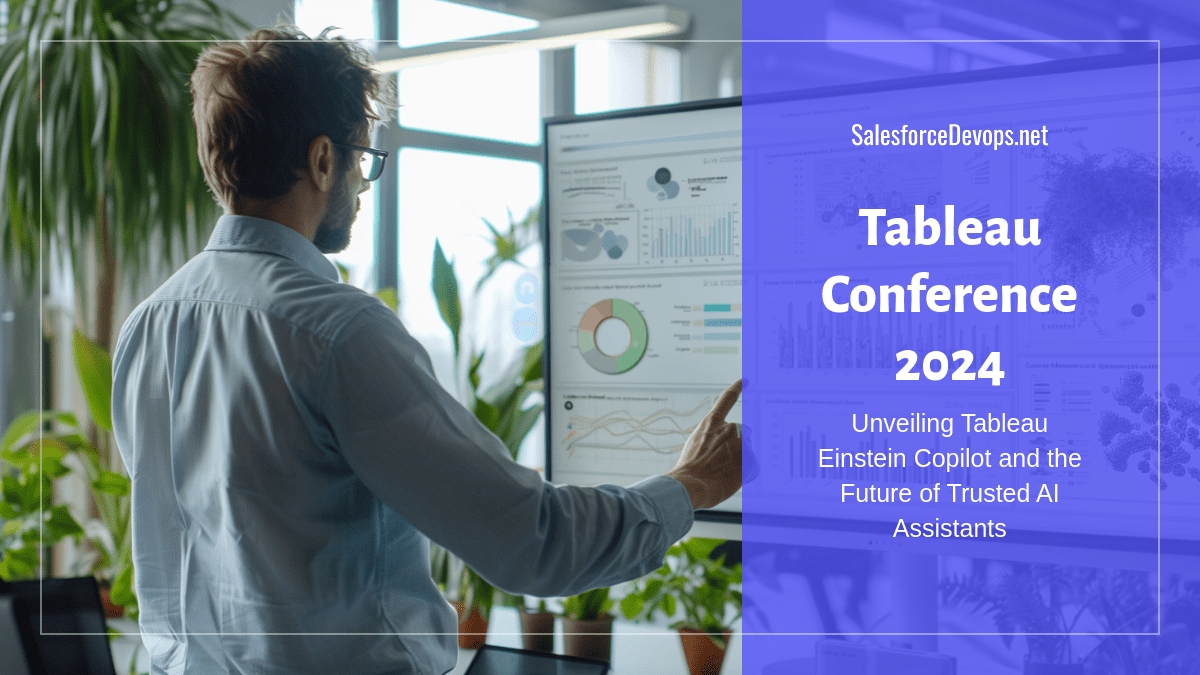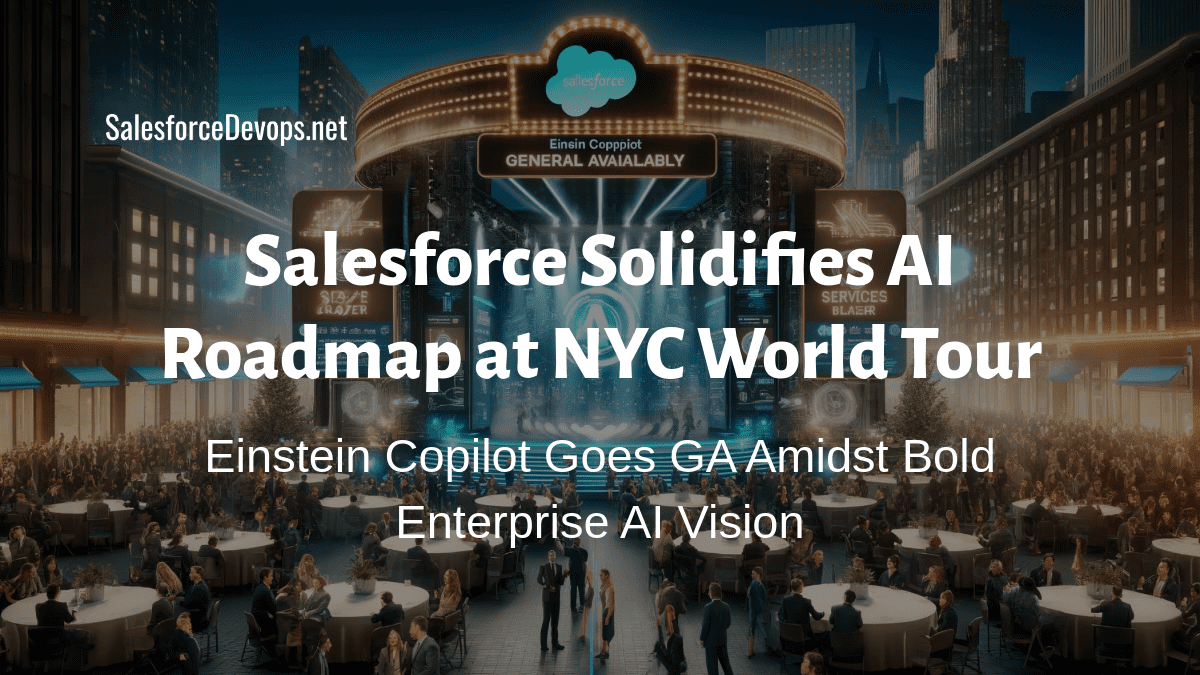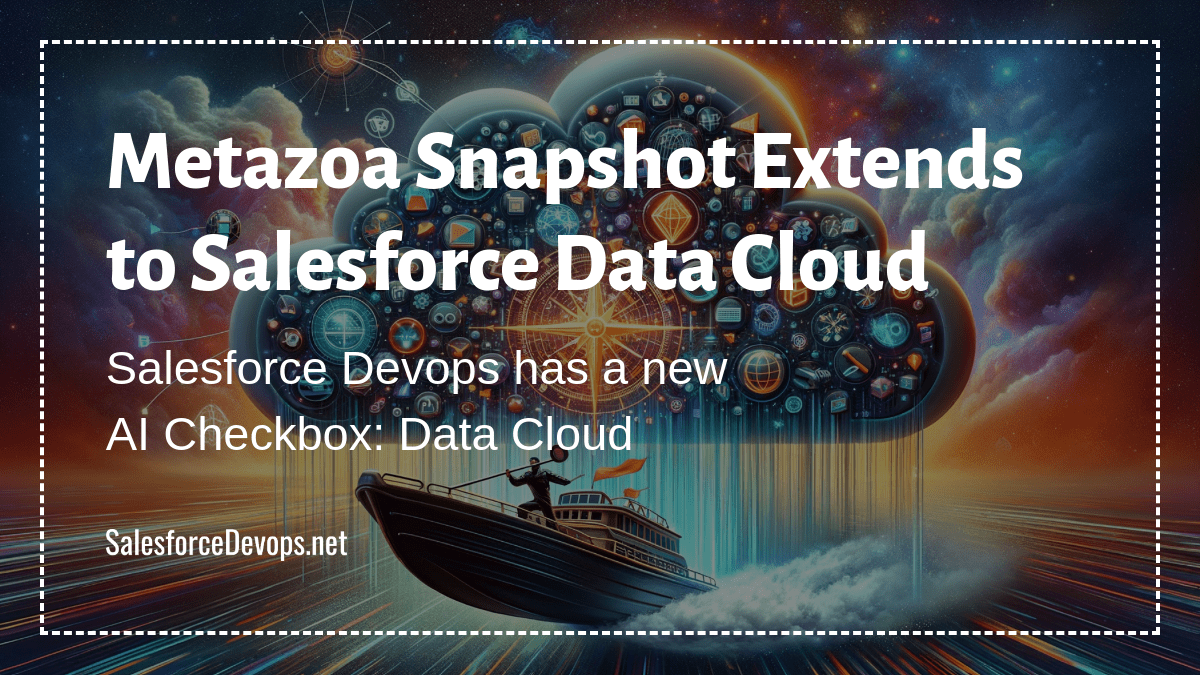Tableau Conference 2024: Unveiling Tableau Einstein Copilot and the Future of Trusted AI Assistants
At the Tableau Conference 2024 in San Diego, the data analytics division of SaaS giant Salesforce unveiled a suite of AI-powered features designed to help users navigate the overwhelming complexity of today’s data landscape. Central to these announcements was a strong emphasis on building trust and transparency. Tableau executives renewed Salesforce’s commitment to the Einstein Trust Layer recognizes the critical role these factors play in driving adoption and confidence in AI-assisted decision-making.
Trust has long been a major barrier preventing widespread adoption of AI tools, particularly when it comes to sensitive domains like personal finance and healthcare. Users are understandably hesitant to rely on opaque algorithms to guide high-stakes decisions, especially when the underlying data and models are shrouded in mystery. Tableau aims to address these concerns head-on with a multi-pronged approach to trust and transparency.
The Einstein Trust Layer: Guarding Data Privacy
At the core of Tableau’s AI strategy is the Einstein Trust Layer, a set of principles and technologies that ensure the responsible development and deployment of AI across the Salesforce ecosystem. As Ryan Aytay, CEO of Tableau, explained during the press conference, “There’s never really been a better time to be focused on trust. And we’re fortunate to be part of Salesforce because trust is our number one value. We want to make sure that data regardless of if it’s company data or personal data, you’re not sending this data out to a third party, large language model. All of that data needs to be guarded carefully. That is your data. Your data is not our product.”
This commitment to data privacy and security is a critical first step in building trust, but Tableau goes further by prioritizing transparency and explainability in its AI-powered features. Southard Jones, Chief Product Officer at Tableau, emphasized the importance of showing users what’s happening behind the scenes: “Trust is about making sure that you do exactly what Ryan mentioned – carefully guarding data. But it’s also about how you communicate and show the user what’s happening behind the scenes when they get a response back from generative AI. We are really working hard to ensure that what we deliver back in our responses and prompts guides users to where we can truly help them.”
True to Tableau: Investing Across the Platform
While much of the excitement at Tableau Conference 2024 centered around AI-powered innovations, Tableau remains committed to delivering value across its entire platform. The company emphasized its ongoing investment in Tableau Server and Tableau Desktop, alongside its cloud offerings, to meet customers wherever they are in their analytics journey.
This commitment is evident in Tableau’s impressive roster of new features:
- Tableau Pulse (GA Now): Delivers AI-powered insights to users via mobile and collaboration platforms.
- Shared Dimensions: Enables multi-factor analysis and boosts productivity.
- Prep Enhancements: Streamlines data preparation workflows.
- Viz Extensions: Extends Tableau’s visualization capabilities across deployment types.
- Einstein Copilot for Tableau Catalog (Beta Now): Generates AI-powered data descriptions and recommendations.
- Line Buffer for Geospatial Analysis: Enhances geospatial analytics capabilities.
- Migration SDK Improvements: Accelerates migration from Tableau Server to Tableau Cloud.
By delivering these enhancements across its cloud, server, and desktop offerings, Tableau is demonstrating its commitment to supporting customers’ diverse deployment needs and empowering analytics at scale. This balanced approach ensures that organizations can benefit from Tableau’s innovations regardless of where they are in their cloud migration journey, while providing a seamless path forward as their needs evolve.
Explainable AI: Building Confidence in Insights
One key example of this transparency in action is Tableau’s approach to Explainable AI (XAI). Tableau helps users to understand why specific insights are being surfaced and how they may be used with confidence. This is particularly evident in tools like Tableau Pulse, which uses natural language explanations to highlight the key drivers behind important metrics and trends.
As Elizabeth Maxson, Chief Marketing Officer at Tableau, noted: “We’re delivering these metrics in the flow of work, wherever you are. So, for example, like me as a business user, I’m on my phone all the time – during my commute, in between meetings. That’s when I’m checking Pulse and getting my updates. It’s less overwhelming because the insights are right there when I need them, with me every step of the way.”
By surfacing insights in a timely, contextual, and explainable manner, Tableau aims to build user confidence in data-driven decision-making, even for those who may not have a deep background in data science or analytics. This democratization of data insights is made possible in large part by recent breakthroughs in natural language processing (NLP) and large language models (LLMs).
The Quantum Leap in NLP: From Narrow Tasks to Conversational AI
NLP has a rich history spanning over 75 years, but until recently, the field was largely confined to narrow, task-specific applications like spam filters and sentiment analysis. The advent of LLMs like GPT-4, Claude, and Gemini has ushered in a new era of NLP, enabling systems to engage in open-ended dialogue, answer follow-up questions, and to power the embedded AI features of Tableau.
Tableau is leveraging these advances in NLP and LLMs to power features like Einstein Copilot for Tableau, a conversational AI assistant that enables users to explore and visualize data using natural language. It’s important to note that while Einstein Copilot for Tableau shares some underlying technologies with the recently announced Einstein GPT for Salesforce CRM, they are distinct products serving different use cases.
As Jones clarified, “The generative AI that went to GA last week for Salesforce CRM is very focused on those specific use cases. What we are beta testing is Einstein Copilot for Tableau, which helps with the authoring experience. It doesn’t impact our roadmap.”
The Road Ahead: Utility, Transparency, and Trust
While the AI-powered features announced at Tableau Conference 2024 represent a significant leap forward in terms of ease-of-use and accessibility, Tableau is quick to acknowledge that there is still much work to be done in building trust and transparency.
By prioritizing transparency, explainability, and responsible AI development, Tableau aims to not only democratize access to data insights but also to build the trust necessary for widespread adoption. As businesses and individuals increasingly rely on data to drive critical decisions, Tableau’s approach to AI-assisted analytics can serve as a model for the industry – one that balances the power of cutting-edge technologies with the fundamental need for human understanding and trust.






